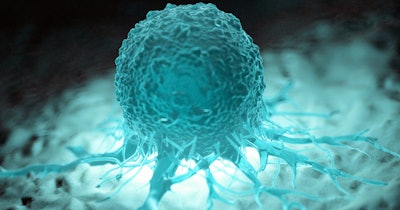
A team of researchers have identified epigenomic drivers associated with cancer development and progression, constructing a pan-cancer epigenetic and transcriptomic atlas from the data.
This atlas “provides a foundation for further investigation of epigenetic dynamics in cancer transitions,” the study team, led by researchers from Washington University in St. Louis, wrote in Nature.
The researchers used a combination of single-cell RNA sequencing, single-nucleus RNA sequencing, and single-nucleus assay for transposase-accessible chromatin sequencing (ATAC-seq) profiling to analyze over a million cells using each platform. The cells were derived from hundreds of pan-cancer tumor samples spanning 11 types of cancer. The researchers assessed transcriptomic and epigenetic features through the enrichment of accessible chromatin regions, transcription factor motifs, and regulons.
While some of the identified epigenetic drivers were cancer-specific, others appeared in multiple cancer types -- the researchers saw changes in regulatory regions of ABCC1 and VEGFA, as well as GATA6 and FOX-family motifs in multiple cancers, for example.
The team also revealed cooperation between epigenetic and genetic drivers and correlations between epigenetic drivers and specific transitions, such as TP53, hypoxia, TNF signaling being linked with cancer initiation, estrogen response, epithelial-mesenchymal transition, and apical junction being linked with metastatic transition.
In discussing their findings, the team notes that their analysis and findings may serve to highlight possible therapeutic targets.
“Understanding the landscape of chromatin architecture across tumors, chromatin accessibility changes at critical cancer transitions, and the interplay between chromatin accessibility, genetic alterations, and transcriptional patterns is crucial to advancing cancer biology and clinical practice,” the authors wrote, adding that they “anticipate that this atlas will be a valuable resource for future cancer studies.”


















